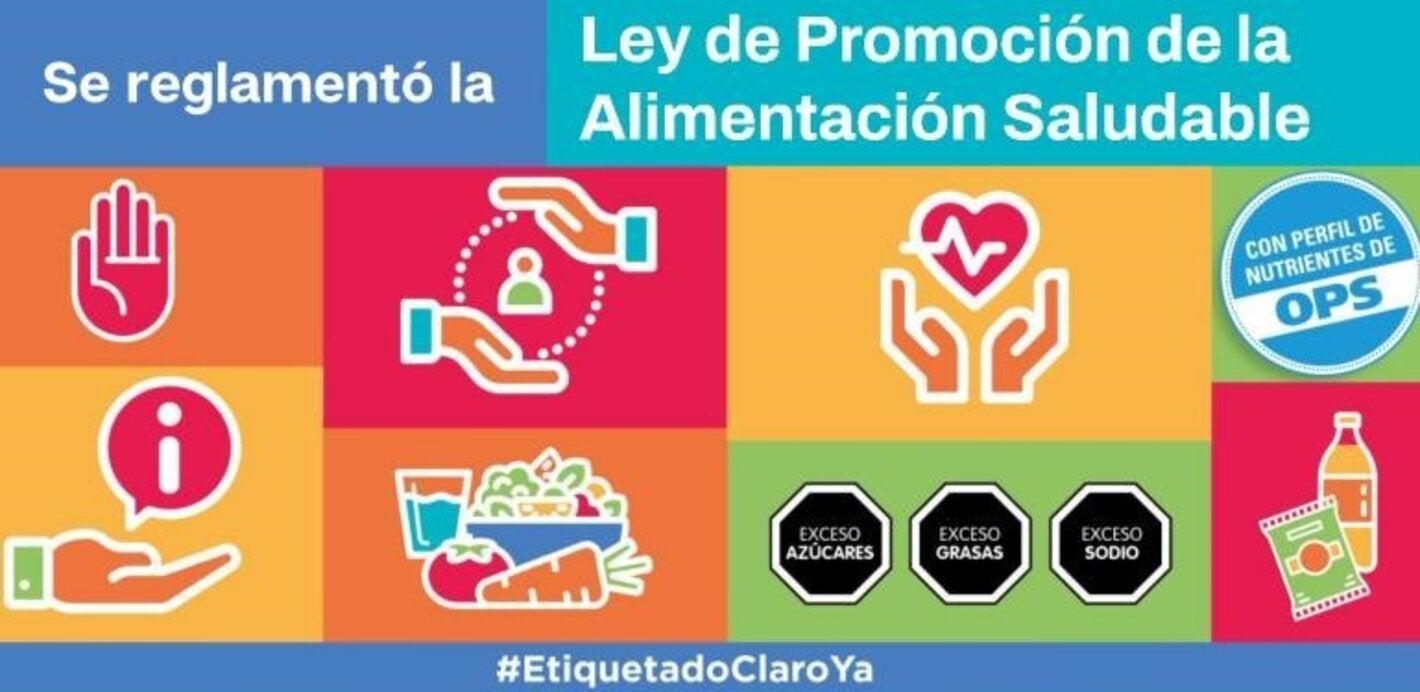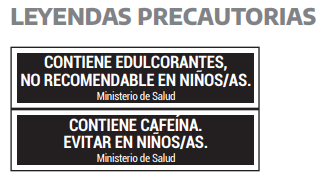
Front-of-package labeling advances in the Americas
The Argentine Law No. 27,642 came into effect, establishing the incorporation of warnings on the front-of-package of containers and regulating the marketing, promotion, sponsorship, and the offer of products with excess sugars, fats, and sodium in schools according to PAHO criteria.
Buenos Aires, March 29, 2022 (PAHO/WHO). – In recent years, front-of-package labeling as a policy to prevent obesity and chronic noncommunicable diseases has advanced significantly. Now, there are six countries that have adopted front-of-package warning labeling, starting with Chile in 2016, followed by Uruguay, Peru, Mexico, Colombia, and Argentina.
In Argentina, on March 23, the regulatory decree that enables the effective implementation of the standard was published in the official gazette. The standard establishes the inclusion of black octagons with white borders and letters that provide warnings about excess sugars, total fats, saturated fats, sodium, and calories. In addition, the standard includes two legends: "contains sweeteners not recommended for children" and "contains caffeine, avoid in children." .
The regulation designates the Ministry of Health of the Nation as the enforcement authority. The deadlines for the adaptation of the front-of-package labels by the industry were established, giving industries up to 9 months for the first stage, and 24 months for the second stage, which includes the full implementation of the parameters of the nutrient profile model of the Pan American Health Organization (PAHO).
The rule also involves the mandatory inclusion of food and nutrition education in schools, and the prohibition of marketing, promotion and sponsorship aimed at children of products that contain warnings on the front-of-packages.
Moreover, products carrying the warning labels cannot contain children's characters or toys, or advertise nutritional or health properties such as "contains vitamins" and "rich in fiber".
The Argentine Law, together with its regulations, capitalizes on the regional experience in terms of labeling, together with the evidence generated on the subject in recent years. This is why, with its effective implementation, it will bring improvements in nutrition, in public health, and in the protection and fulfillment of human rights, particularly those of children and adolescents.
PAHO has been supporting Argentina in the development of this regulation and providing technical cooperation to legislators and the executive branch based on the evidence and the lessons learned from the experience accumulated on the subject in Chile, Mexico, Peru, Uruguay, and Colombia.
In this regard, it is the second country in the region after Mexico to reach the highest standards of
regulation of front-of-package labeling, incorporating the PAHO nutrient profile model as a parameter to establish the products that must carry warnings, and restricting elements of persuasion in those products. In addition, inspired by the lessons of the Chilean experience, Argentina adopts for the first time the PAHO parameters to regulate labeling, advertising, promotion and sponsorship, and school environments in a comprehensive and systemic manner.





